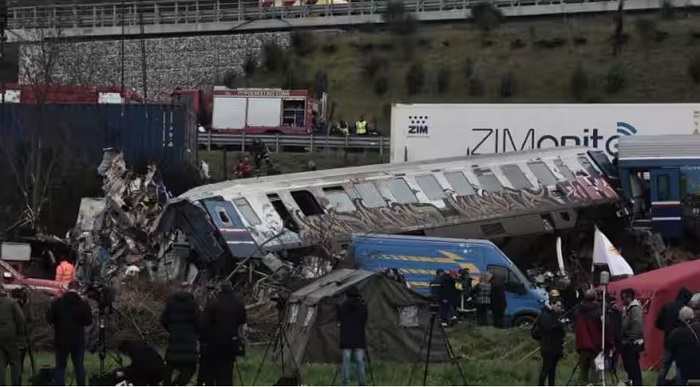The death toll from a head-on collision between two trains in central Greece on Tuesday night has increased to 38, while 57 people are still hospitalized, the Greek Fire Service has said on Wednesday.
Six people have been admitted to intensive care, it added.
With a search and rescue operation still underway near the city of Larissa, the death toll is expected to climb higher, Greek Fire Service spokesman Vasilios Vathrakogiannis told a press briefing.
Most of the victims in Greece’s worst ever train accident were young people whose families are now demanding explanations, Greek Prime Minister Kyriakos Mitsotakis said in a televised address to the nation in the evening.
“We will work so that this ‘never again’ that I heard in Larissa will not remain an empty promise,” he told Greek national broadcaster ERT.
The Greek PM added that the country’s State Minister Giorgos Gerapetritis would serve as a transitional Infrastructure and Transport Minister, after the resignation of Kostas Karamanlis, until the general election which would take place in the spring.
An independent, cross-party committee of experts will also be established, to fully examine the causes of the accident, and to investigate chronic delays in the implementation of railway projects. Two national railway officials have resigned, Mitsotakis added.
An investigation into the cause of the disaster had been launched, with information so far indicating that it was caused by human error, Mitsotakis said.
The two trains, a passenger train traveling from Athens to Thessaloniki city port in northern Greece and a cargo train, were on the same track, but traveling in opposite directions for several kilometers before the collision.
President of the train drivers’ association Kostas Genidounias told ERT that there were chronic shortcomings in railway operations that should be addressed.
A three-day national mourning has been declared in the country.


